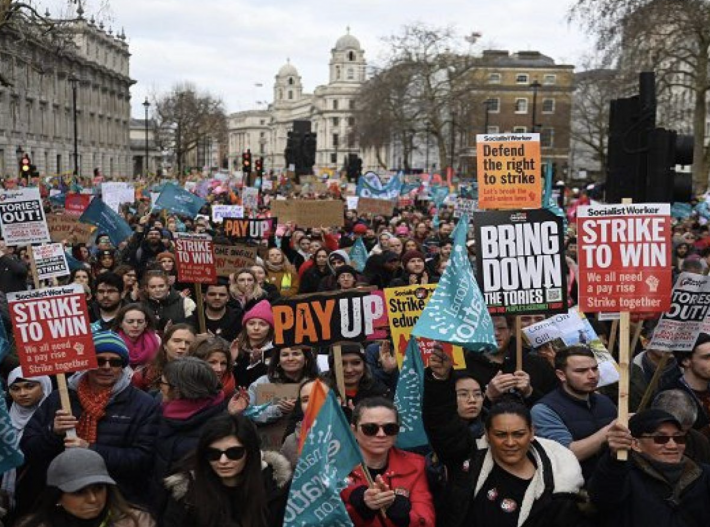We often view strikes as a significant disruption that damages our society. Negative connotations surround the word, and the action of strike often favours the right. However, some people turn a blind eye to the significance of this form of direct action in the past, present, and future, particularly in the 21st century, where democracy in the UK is severely challenged, which has led to several strikes by national services over the past few months.
In the UK, people rely on healthcare, transport, and education services. But the public suffers the consequences because the government cannot provide a solution.
The current strikes in education, particularly universities across the country, are being known as ‘the biggest series of strikes ever to hit the UK.’ Despite the disadvantages, many students will face and the financial burdens on international students, it is essential to acknowledge that these strikes mean more than just a simple pay rise. It is about the ability to teach with adequate services and supplies.
With the rising cost of living, many find it challenging to adapt to this norm. The financial struggles that services in the public sector are facing is primarily because the government refuses to increase their spending on their pay to meet the cost-of-living crisis. Network Rail’s plans to cut 1,900 jobs to help fund pay rises for staff is alarming, creating another issue of unemployment to survive the British economy is facing. Yes, Network Rail offered a 4% pay rise; however, will this make the difference? Concerning the rapid increase in prices of necessities, will this offer be enough? No, it will not.
The National Health Service belongs to the people. It was established on social justice and equity; however, this is no longer true. With the lack of government funding towards our healthcare services, the strikes that have begun since December 2022 it has resulted in more than 80,000 appointment cancellations putting more patients at risk. Currently, there has also been an escalation of action in ambulance services, which has caused damaging impacts on vulnerable patients.
Others may argue that those working in the NHS should prioritise their patients above everything and use alternative actions rather than strikes. However, how else will their voices be heard?
Many will believe that the current strikes are based on a pay rise. This is incorrect, and we should clear ourselves from this misrepresentation. The strikes are fundamentally based on the need for change. The need to hold our government accountable for their actions. The need for these services to be funded suitably as they are facing deteriorating cases of the lack of equipment and services. If their salary were the significant reason behind their strikes, then they would not be striking. If the government does not take the action these services deserve, it will be an ongoing issue.
Saba Malik
